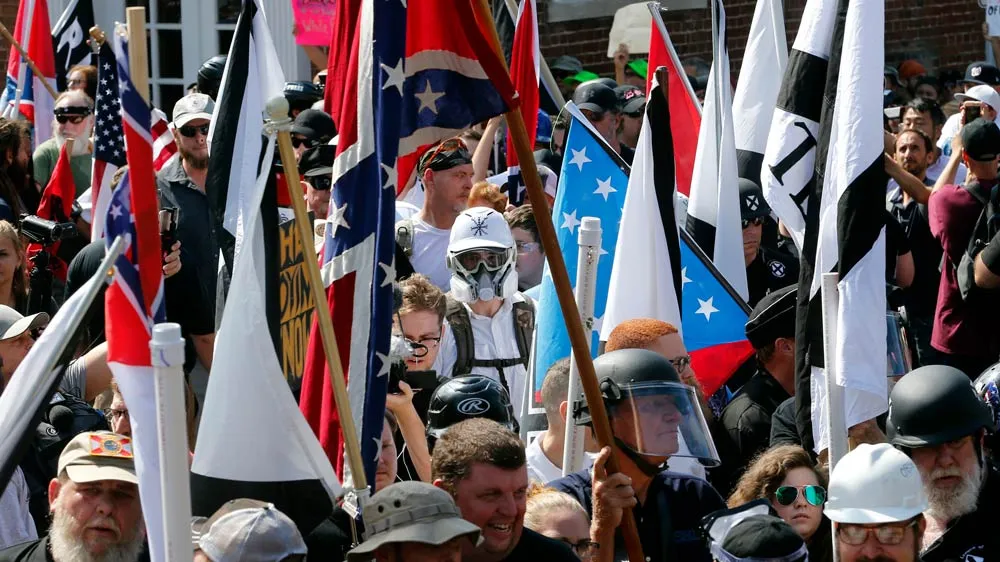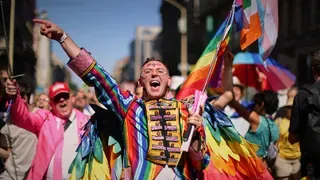November 15, 2011
Bishops Say Government Eroding Religious Liberty
Jason St. Amand READ TIME: 3 MIN.
U.S. Roman Catholic bishops vowed Monday to defend their religious liberty in the face of growing acceptance of gay marriage and what they called attempts by secularists to marginalize faith.
Bishop William Lori, leader of a new national religious liberty committee, condemned federal and state policies that he said interfered with the church's ability to provide social services, from health care to immigrant support to international aid.
In Illinois, government officials stopped working with Catholic Charities on adoptions and foster-care placements after 40 years because the agency refused to recognize a new civil union law. Illinois bishops had sued the state but on Monday said they would stop the legal fight and no longer provide state-funded services.
In New York, the bishops, along with Orthodox Jewish leaders and others, have complained that the religious exception in this year's law allowing gay marriage is too weak to be effective.
On the federal level, the bishops have been pressing the Health and Human Services Department during its public comment period for a broader religious exception to part of President Barack Obama's health care overhaul that mandates private insurers pay for contraception.
"We should not be obliged to provide services or other initiatives that are contrary to our conscience," said Lori, bishop of Bridgeport, Conn. "We don't need the government forcing our hand."
Archbishop Timothy Dolan, president of the U.S. Conference of Catholic Bishops, said the bishops are not just reacting to Obama's policies, but to a broader society in a "drive to neuter religion" and "push religion back into the sacristy."
"That's a cultural issue that the church has been concerned about forever, not just in the United States," Dolan said.
But Dolan said he discussed the church's concerns with Obama when the two men met last week in the Oval Office. The archbishop said Obama was "extraordinarily friendly" and "very ardent" in reassuring Dolan that the administration would look into the problems.
"I left there feeling a bit more at peace with this issue than when I entered," Dolan said.
Religious freedom was the main focus at the fall meeting of the U.S. Conference of Catholic Bishops, which has public sessions through Tuesday.
The new religious liberty committee that church leaders formed met for the first time. Anthony Picarello, general counsel for the conference, will oversee that work, which will include hiring a lobbyist and another attorney.
Picarello had worked for seven years at the Becket Fund for Religious Liberty, a public-interest law firm based in Washington, and also served on an advisory committee for Obama's Office of Faith-Based and Neighborhood Partnerships.
Bishops hope to persuade federal lawmakers to retain the Defense of Marriage Act, which passed in 1996, and launched a new website called Marriageuniqueforareason.org. Obama has said his administration would no longer defend the law, calling it "counter to the Constitution." Bishops said it was wrong to describe their religious convictions as discrimination.
"The church has nothing against compromise, but we can't compromise principle," Dolan said.
The bishops are confronting the Health and Human Services Department on another front. The government agency recently decided not to renew a contract held since 2006 by the bishops' refugee services office to help victims of human trafficking.
The American Civil Liberties Union is suing to stop the agency from making grants to groups who "impose religiously based restrictions on reproductive health services" for human trafficking victims. The women are often raped and forced into prostitution by their captors.
The bishops' conference has called the decision biased against Catholic beliefs. Agency officials vehemently deny any bias and say the sole criteria for evaluating potential grantees was which group could best serve the victims. Administration officials note that the vast network of Catholic social service nonprofits, including the bishops' conference, receives hundreds of millions of dollars in government funding in amounts that have increased in the last couple of years.
"We should not be at a disadvantage competing for contracts because we bring certain convictions to the table," Lori said.







